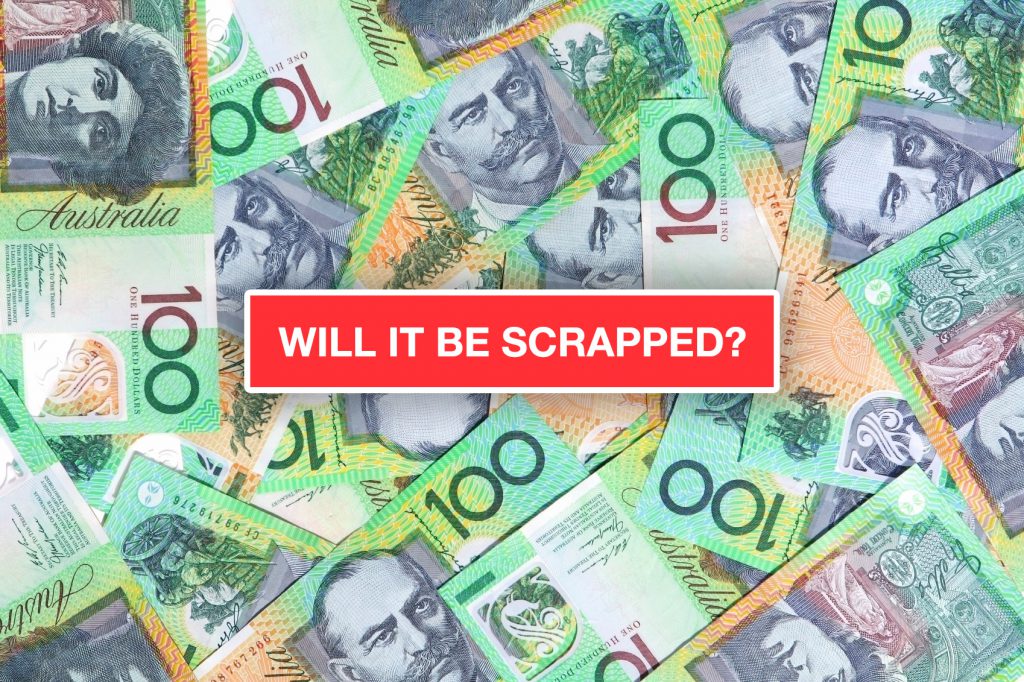
Posted on: 14 Dec 2016
Crackdown on cash economy targets $100 bills and billions for budget
The Turnbull government expects to find billions for budget repair through a cash economy taskforce that will consider the future of the $100 note and a ban on cash payments over a certain limit.
The black economy – sometimes called the cash or hidden economy – accounts for 1.5 per cent of GDP, or $21 billion, which is money that goes untaxed and therefore represents major revenue leakage.
The taskforce, to be announced as part of Monday's mid-year economic update, will target a wide range of activities, from undeclared "sharing economy" income to cash-in-hand renovations, welfare fraud and serious financial crime.
"Nothing makes Australians angrier than having to pay more tax as a result of someone not paying the tax they're meant to pay," Revenue and Financial Services Minister Kelly O'Dwyer said.
"We are talking about very significant revenue. I won't put a specific number on it...but even if you got a reasonable percentage of that we are talking billions of dollars."
Ms O'Dwyer said the taskforce, to be headed by former KPMG global chairman Michael Andrew, would complete the Coalition's work on improving the integrity of the tax system.
Earlier initiatives included the Multinational Anti-Avoidance Law, Diverted Profits Tax and Tax Avoidance Taskforce announced in the 2016 budget. With an expectation that it will collect nearly $4 billion over four years, the Tax Avoidance Taskforce was the heavy lifter in this year's budget. Mr Andrew's recommendations on the black economy will be fed into the 2017 budget process.
Poacher turned gamekeeper
"He's a bit of a poacher turned gamekeeper. He knows how these systems operate," Ms O'Dwyer said.
Ms O'Dwyer said the taskforce would draw on the experience of countries such as France, where the government is banning cash payments of over 1000 euros, and Sweden, where businesses that trade in cash are required to use a certified cash register that provides real-time information to the Swedish tax authorities.
HSBC and UBS have suggested removing high-denomination bank notes from circulation to reduce financial crime and improve productivity.
After India scrapped the 500 and 1000-rupee bank notes and issued new currency to crack down on the un-taxed cash economy, HSBC Australia head of payments and cash management Simon Babbage last month told The Australian Financial Review the bank would support a similar move to improve transparency in the Australian economy.
Ms O'Dwyer said money laundering, financial crime and the financing of terrorism would be front of mind for the taskforce.
"We've got three times as many $100 notes in circulation as $5 notes and we've got about $30 billion worth of $100 notes in circulation at a time when increasingly we have people more and more using electronic payment systems," she said.
"It does beg the question 'why' and that's something the black economy taskforce will focus on.
"The truth is the movement of money is a significant issue. It's much easier to take a suitcase full of $100 bills than a suitcase full of $20 bills overseas."
Looking overseas
The Board of Taxation, which provides industry advice to the Treasurer and is chaired by Mr Andrew, has been looking at overseas examples.
Board of Tax chief executive Karen Payne, a former Minter Ellison partner, said one solution might be reporting of any cash transaction above a threshold – currently cash transactions over $10,000 are reported but only by cash dealers and financial institutions – or a complete ban on cash transactions above a limit.
The taskforce would have the full cooperation of the Australian Federal Police, Reserve Bank of Australia, Department of Human Services, Austrac, the Department of Immigration and financial regulators, Ms O'Dwyer said.
The taskforce will provide an interim report in March and a final report in October.
Ms O'Dwyer said some welfare claimants used cash to cheat the system.
"There are certainly instances where people will have been made cash payments that they are not declaring," she said.
"At the same time they will also be drawing down on our welfare system. That's not right because, one, they are making claims through our welfare system that they are not entitled to make and two they are not paying tax on the amount of money that they earn. The honest Australian citizen is being dudded in that instance."
Calls for cash amnesty
Chartered Accountants Australia and New Zealand has previously called on the government launch an amnesty on the cash economy, including landlords who fail to disclose rental income, which could boost revenue by more than $3.5 billion a year.
Landlords could be followed by industries notorious for cash-in-hand work, such as building and motor vehicle repairs.
While the use of cash is actually in decline, according to an Australian National Audit Office report released earlier this year, people find other ways to engage in the shadow economy.
"There is evidence that businesses are using sales suppression software to manipulate records created by electronic cash registers or computerised point of sale systems to avoid their taxation obligations," the report said.
HSBC's Babbage says that ultimately cash is expensive and inefficient and people will "vote with their feet".
"[People] are taking less cash out of ATMs, we've seen an increase in the use of Apple Pay, we've seen an increase in the use of card-based transactions," he said. "The more mechanisms we give them to pay using non-cash, the more they tend to use them.
"If you look through the cycle, cash will continue to diminish, and if abolishing particular denominations helps us down that road, I think there are only upsides."
Source: AFR